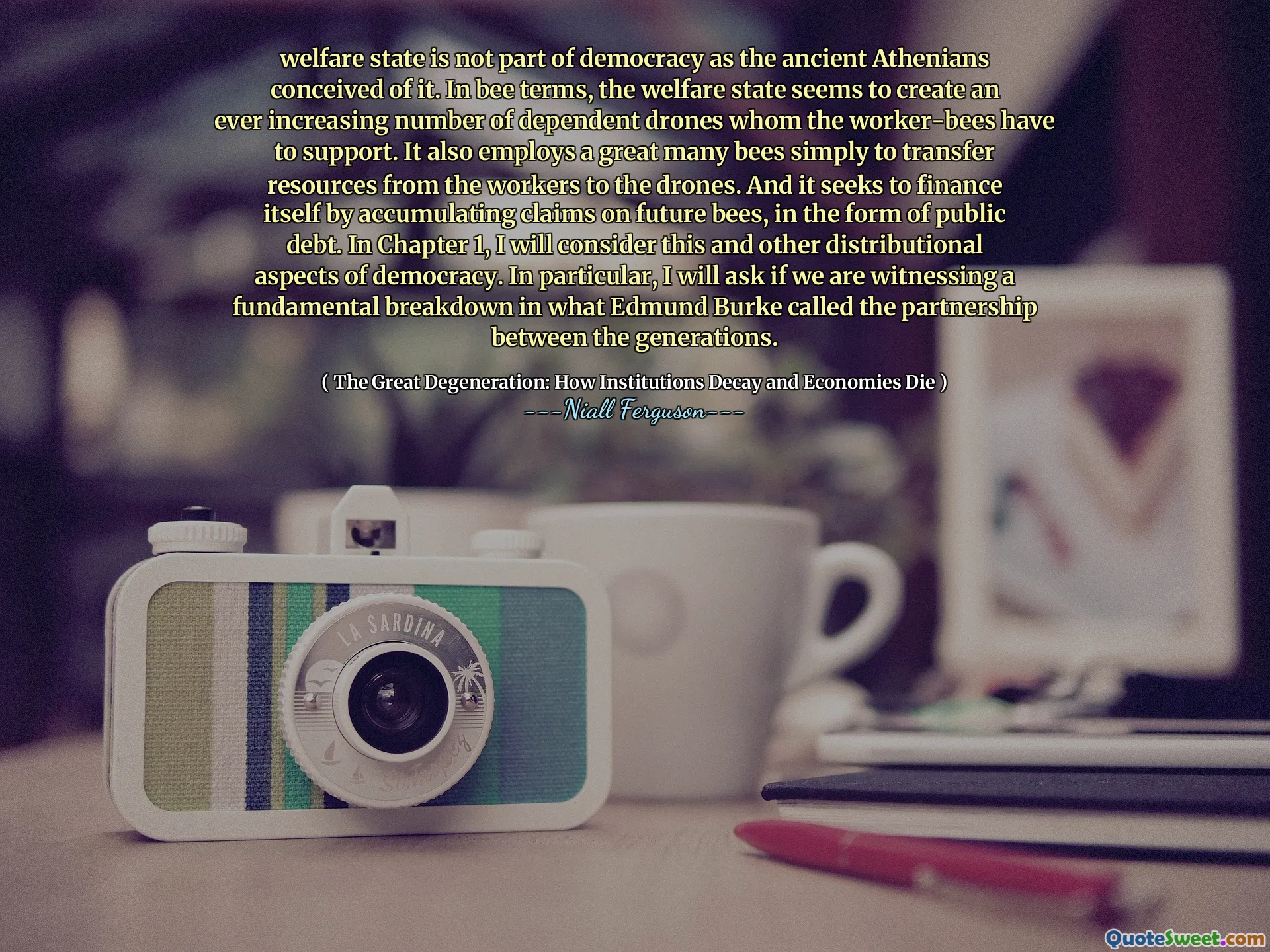
welfare state is not part of democracy as the ancient Athenians conceived of it. In bee terms, the welfare state seems to create an ever increasing number of dependent drones whom the worker-bees have to support. It also employs a great many bees simply to transfer resources from the workers to the drones. And it seeks to finance itself by accumulating claims on future bees, in the form of public debt. In Chapter 1, I will consider this and other distributional aspects of democracy. In particular, I will ask if we are witnessing a fundamental breakdown in what Edmund Burke called the partnership between the generations.
Niall Ferguson's book, "The Great Degeneration," critiques the concept of the welfare state, asserting that it diverges from the original democratic ideals held by ancient Athenians. He likens the welfare state to a hive where a growing number of dependent individuals, or 'drones,' rely on the productivity of 'worker-bees' for support. This system, according to Ferguson, creates an unsustainable imbalance as it necessitates a considerable workforce dedicated to reallocating resources from productive members of society to those who are dependent.
Furthermore, Ferguson argues that the welfare state finances itself by creating public debt, placing a burden on future generations. He raises concerns about the implications of this system on intergenerational partnerships, a concept championed by Edmund Burke. In the first chapter, he intends to explore the distributional issues within democracy and examine whether current trends indicate a fundamental deterioration of these essential relationships between generations.











